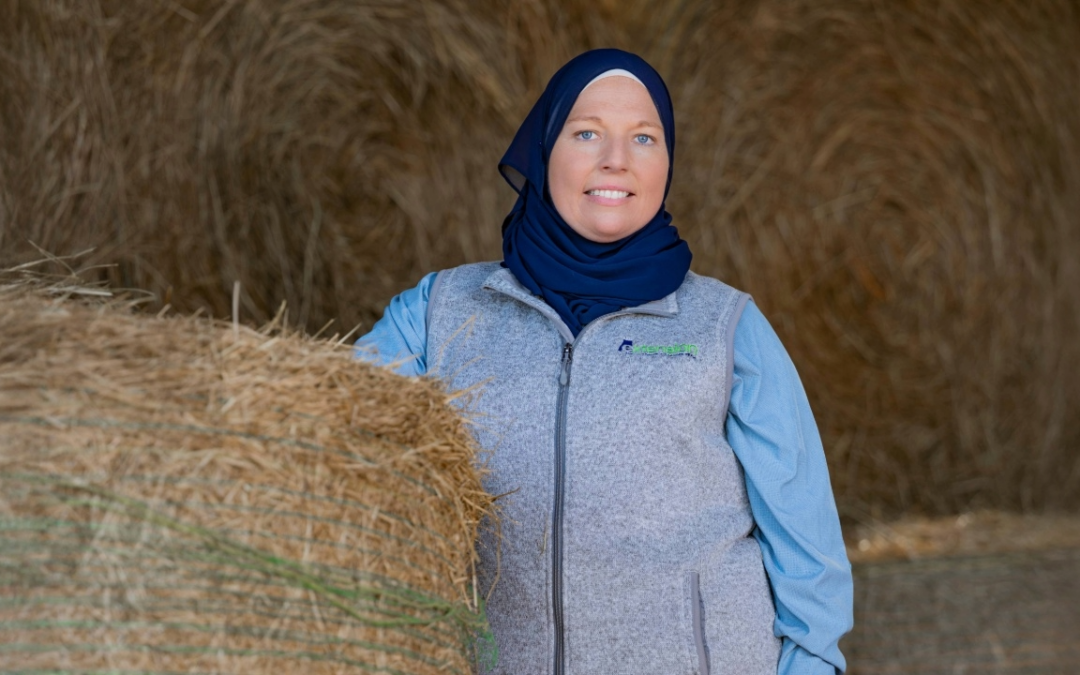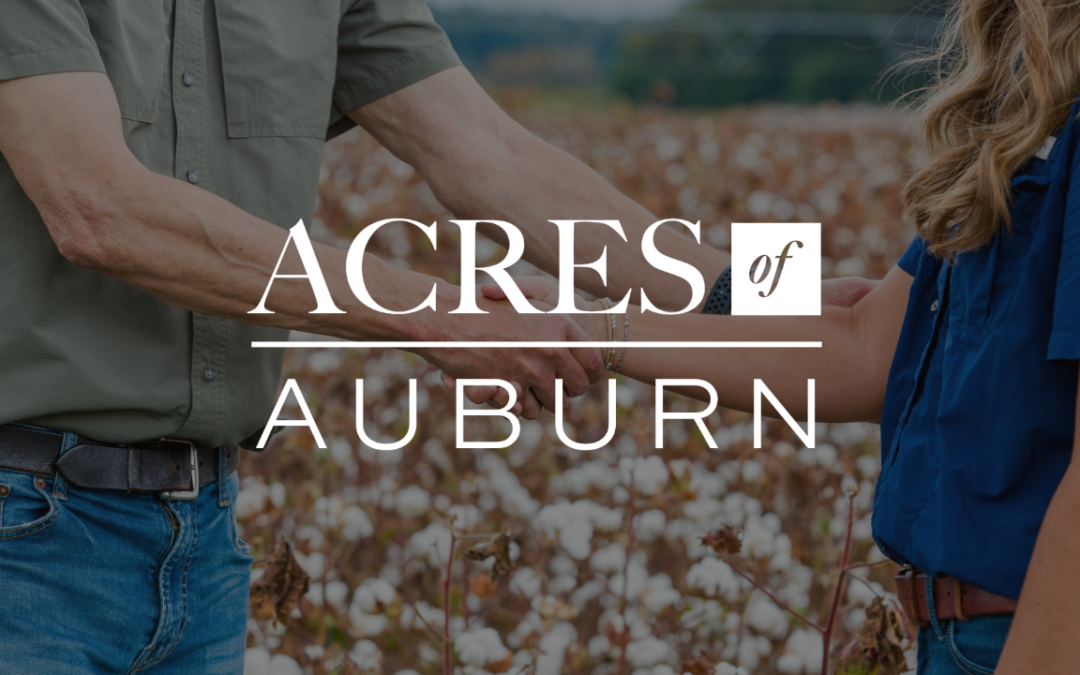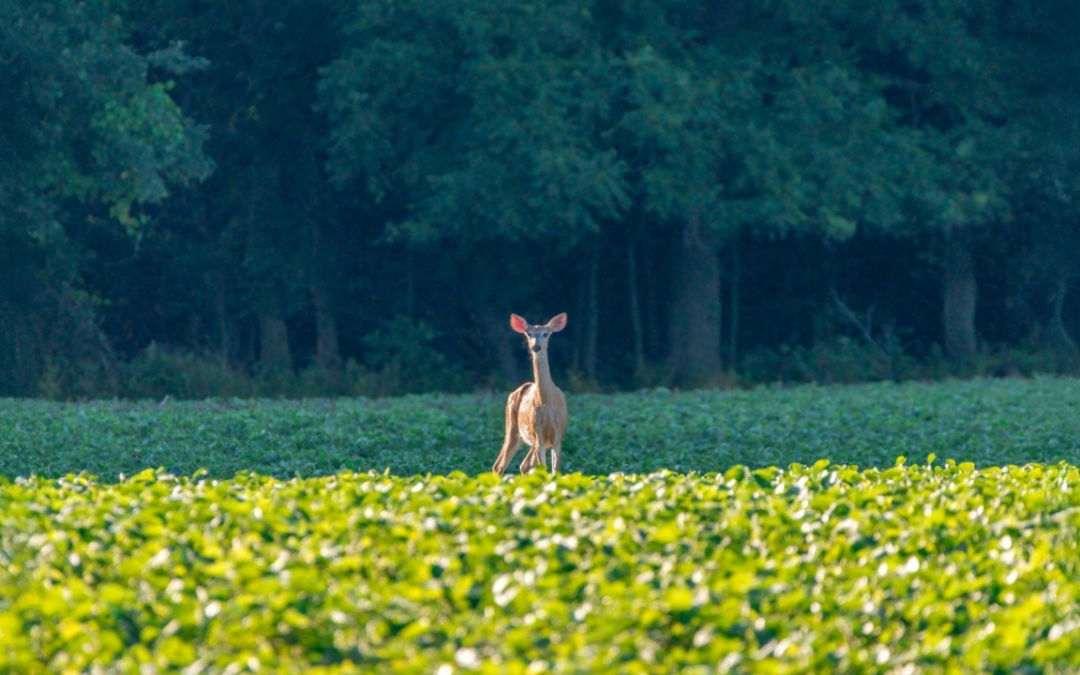
AU Victory on the No. 1 green of the windmill course at Bent Brook Country Club in Birmingham, Ala., 20 days after seeding. Photo courtesy of Johnny Perry, superintendent, Bent Brook County Club
by PAUL HOLLIS
“AU Victory” is no longer simply the wish of every Auburn University sports fan. It’s also the name of a new bentgrass variety that promises improved putting greens for golfers.
The new variety—the first bentgrass released by the university’s turfgrass research team—could be the perfect solution for golf course superintendents looking for a bentgrass putting surface that will thrive in the high humidity and heat that characterizes many areas where such putting greens are featured.
Edzard van Santen, a professor in the Department of Crop, Soil and Environmental Sciences who specializes in plant breeding and genetics, said AU Victory is a survivor of collections made from putting greens during prolonged summer droughts. He describes his approach to developing AU Victory as part “tough love” and part “survival of the fittest.”
“In Alabama, bentgrass is grown mostly in the northern third of the state, but some golf courses don’t have their own water sources, relying instead on municipal water systems,” van Santen said. “When weather conditions turned dry during the summers of 1999 and 2000, some cities cut off the golf courses’ water supplies to help conserve water. As a result, some of the greens couldn’t be watered.”
Seeing an opportunity, van Santen salvaged a surviving plugs from otherwise decimated greens. Approximately 300 individual plugs were collected, grown in a greenhouse and transplanted to a field at Auburn University’s Tennessee Valley Research and Extension Center in Belle Mina. That’s when a two-year period of tough love began.
“I asked the folks in north Alabama to mow them occasionally but to otherwise forget about them,” van Santen said. “If they don’t survive, then that’ll be the end of the project.”
But some—about half of them—did survive, so van Santen initiated a collaborative effort with Virginia Lehman, a private turfgrass breeder in Oregon. She eliminated 50 of the entries based on appearance and turf quality.
“Seed production for cool-season grasses such as bentgrass must occur in Oregon or a similar climate,” van Santen said. “We can’t produce the seed here because the weather’s too hot, and the seed matures too late. Oregon has nice, mild winters, and the grass lives on residual soil moisture during the summer due to a lack of rainfall, resulting in excellent seed quality.”
Seed harvested from the 100 remaining entries was used to establish plots at Auburn, plots that were rated for color, turf quality and disease tolerance.
“In late May of 2004, we began withholding all fungicide applications from the evaluation trial, and we minimized supplemental irrigation,” van Santen said. “Very little disease was noted throughout the summer, but in October of 2004, a severe dollar-spot infestation occurred, allowing us to distinguish our entries from commercial comparisons.
“Parents for two experimental populations were selected on the basis of the cumulative turf quality score and reaction to dollar spot disease.”
Plugs from selected entries then were sent to Oregon to establish breeder-seed nurseries, which were harvested for seed in 2005 and 2006. Beginning in fall 2005, these two experimental populations were tested in various trials at Auburn and used on nursery greens at the Country Club of Birmingham and at Grand National in Opelika.
In consultation with industry professionals, van Santen chose one experimental population for advancement, and a foundation seed field was established in Oregon in fall 2009. Foundation seed was harvested in 2010 and 2011, and commercial seed multiplication was initiated in 2014.
AU Victory already has proven to be a hit in Alabama, where it has been used to renovate greens at Southern Gayles Golf Course in Athens. The Deer Run Golf Course in Moulton has nine greens seeded to AU Victory, after it provided the solution for a problem green there. In addition, the Bent Brook Golf Course in Birmingham is in the process of renovating all 27 greens with AU Victory.
“Bentgrass is desirable for golfers because it helps the ball run true and fast, but managing it can be a challenge,” van Santen said. “The big difference we see in AU Victory compared to other bentgrass varieties is root mass. It has many more roots, and they are deeper than in other cultivars. That’s the direct result of tough selection for drought resistance.
“The other advantage is that it has a higher shoot density,” he said. “That’s not unique, because all modern varieties that have come out of other breeding programs share that characteristic. If you have adequate bentgrass shoot density, you have fewer weed problems.”
Other favorable characteristics of AU Victory include quick establishment, even at low seeding rates, and good color and turf quality during late-summer stress periods. It also has shown the ability to recover quickly following aeration.
Van Santen says he and other researchers already are working on the second and third generations of AU Victory.
“Plant breeding is a transgenerational enterprise,” he said. “We’re not striving for perfection, but incremental improvements.”
AU Victory is marketed through the Alabama Crop Improvement Association in Headland. To purchase seed, call the association at 334-693-3988.




